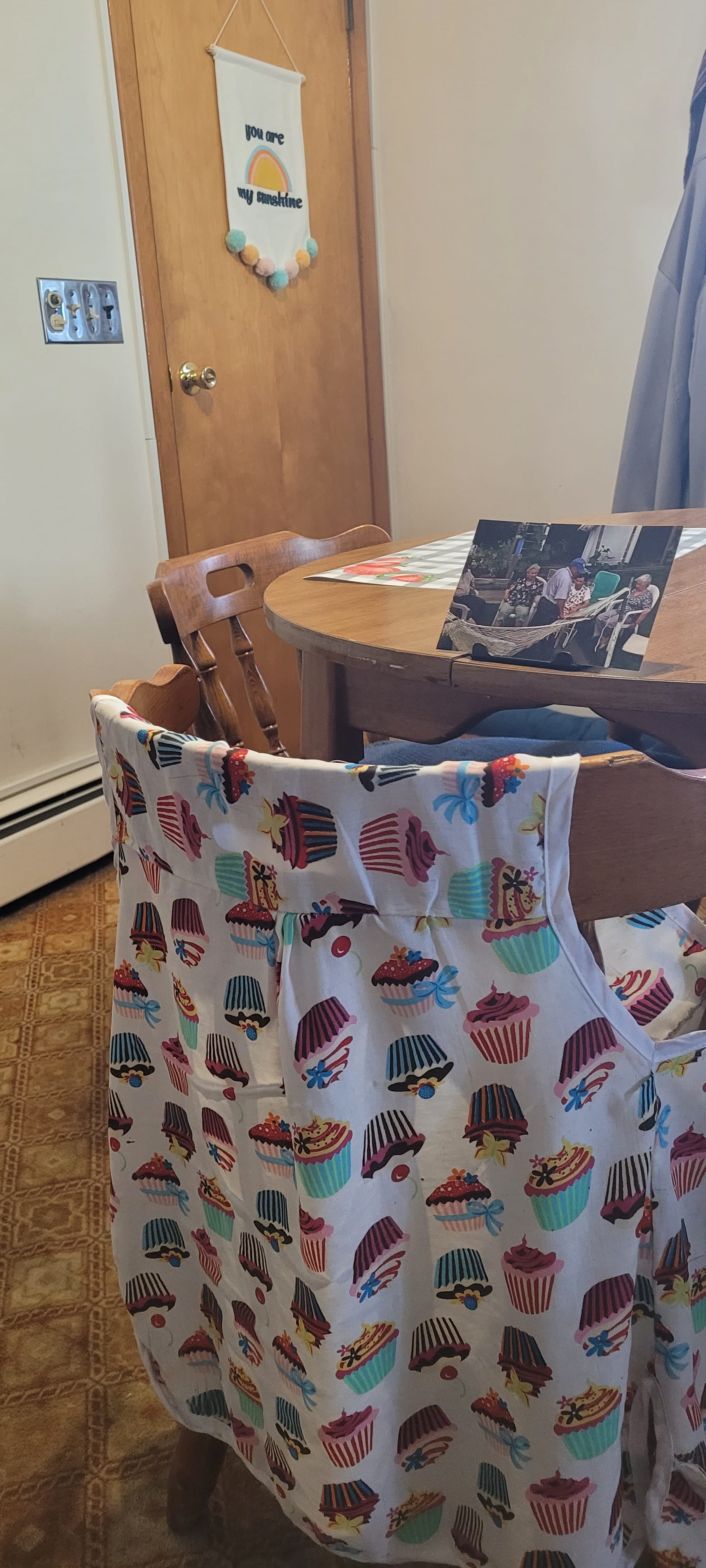Andrew Garfield discusses grieving the loss of his mother
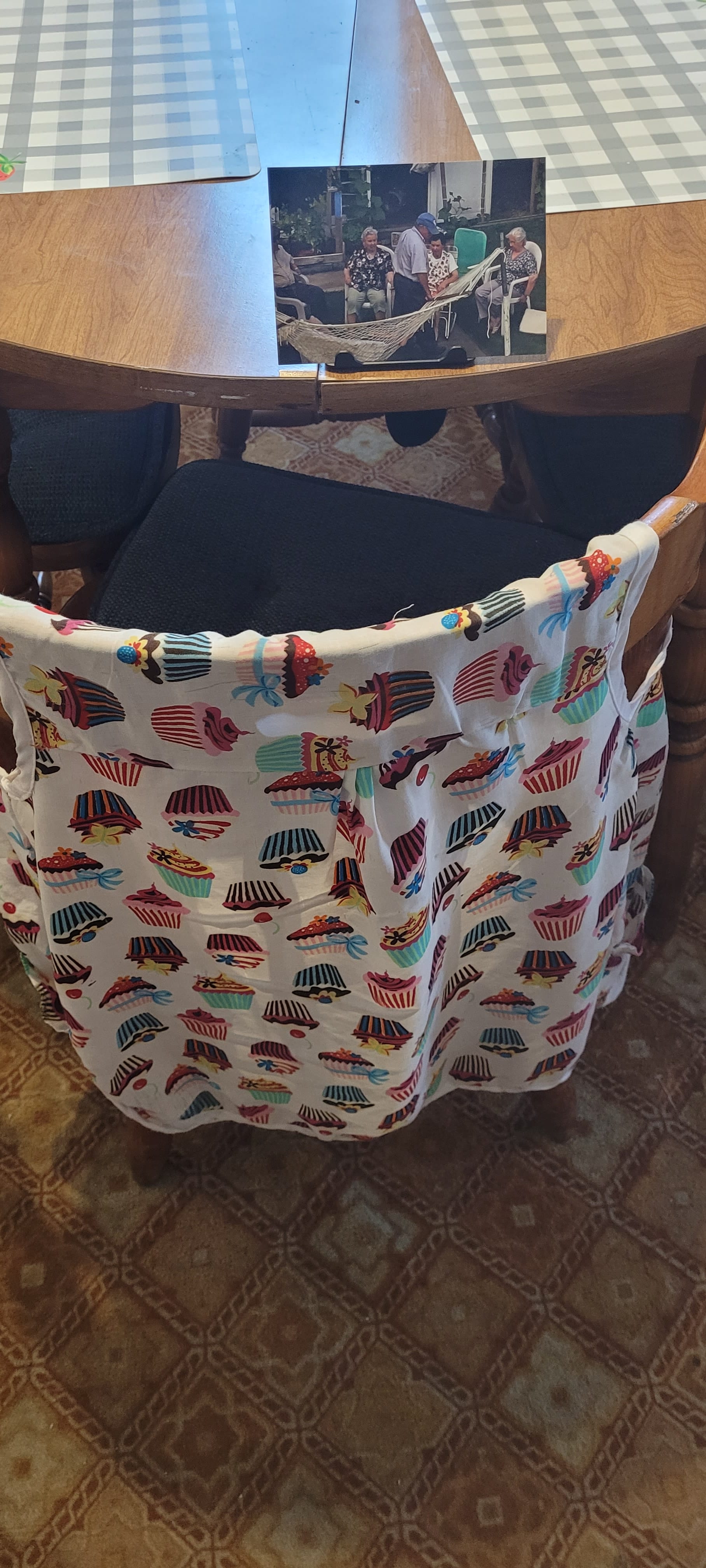
You do not have to be good.
You do not have to walk on your knees
for a hundred miles through the desert repenting.
You only have to let the soft animal of your body
love what it loves.
Tell me about despair, yours, and I will tell you mine.
Meanwhile the world goes on.
Meanwhile the sun and the clear pebbles of the rain
are moving across the landscapes,
over the prairies and the deep trees,
the mountains and the rivers.
Meanwhile the wild geese, high in the clean blue air,
are heading home again.
Whoever you are, no matter how lonely,
the world offers itself to your imagination,
calls to you like the wild geese, harsh and exciting -
over and over announcing your place
in the family of things.
-- Wild Geese by Mary Oliver
I was introduced to this lovely poem by Anderson Cooper and Andrew Garfield near the end of Cooper’s podcast. “All There Is.” Anderson Cooper is renowned as one of the best and most respected news journalists out there. I don’t think there are many people in America who aren’t familiar with him. Even if you don’t follow the news, if you’ve ever turned your TV on for New Year’s Eve to watch the ball drop in Times Square, odds are pretty good you’ve spent the last few minutes of every year listening and watching him with his good friend, Andy Cohen.
Cooper has interviewed presidents and other world leaders. He has been on location covering hurricanes and other natural disasters. He has been in war zones. He covered 9/11. Nothing seems to rattle Cooper.
That is why I was intrigued when I heard about this new podcast of his. It wasn't about news. The podcast was about grief. His mother, the heiress and socialite Gloria Vanderbilt, died in 2019 at the age of 95. His father died when he was 10. Anderson was 21 when his brother jumped off a 14th floor balcony to his death while his mother, Gloria, pleaded him to step back inside.
Cooper did a wonderful documentary titled, “Nothing Left Unsaid: Gloria Vanderbilt and Anderson Cooper” which touches on all these events. The documentary also follows along as Anderson Cooper tries to build the courage to pick up the pieces, both literally and figuratively, of dealing with doing such things as going through his mother’s apartment following her death. The documentary deserves an entirely different article to do it right.
But for this article, I want to focus on this episode of his podcast with Andrew Garfield. I first saw Garfield in the movie, Social Network, which was based on the creation and rise of Facebook. Garfield really rose to fame when he took over for Tobey Maguire in the iconic role of Spiderman in the blockbuster Marvel movie franchise.
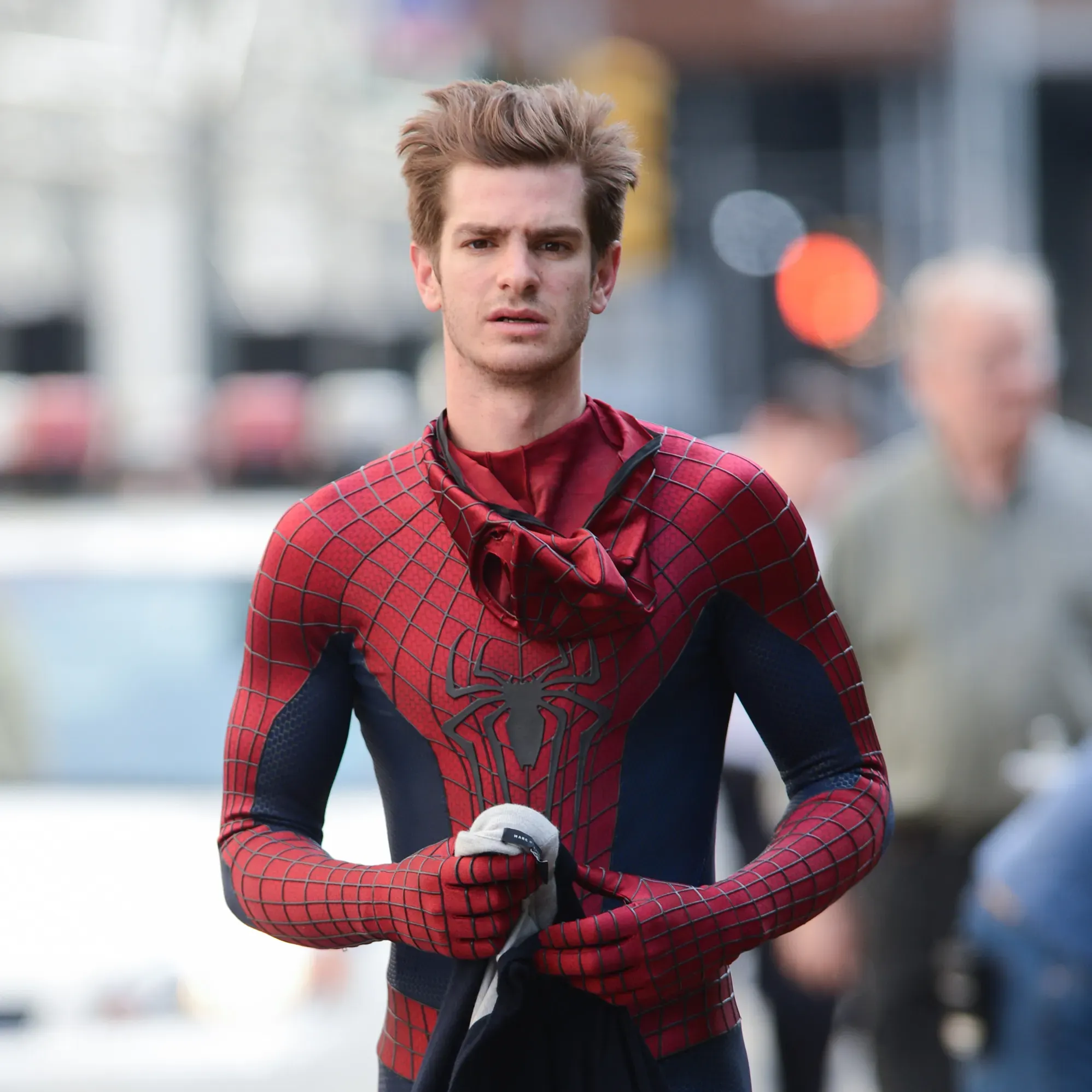
Garfield is now 41. Garfield lost his mother in 2019 – the same year Cooper lost his mom. I lost my mother in 2021. Like many of us, Garfield went through a difficult transition trying to adapt to a world where he no longer had a mother to call or hug.
So many things about the podcast resonated with me. I watched Garfield on other talk shows, like the Late Show with Stephen Colbert (video below), touch upon his mother’s death, but this was stripped down. Garfield wasn’t on Cooper’s podcast to promote any movies. This was 33 minutes of Garfield, as well as Cooper, tearing down the curtain and revealing themselves, not as celebrities, but as human beings like you and me, grieving the loss of their mothers.
It serves as a reminder that no one is immune from death. Money may buy a lot of things, but it doesn’t buy protection from basic human emotions.
Which is a good segue to one of the first things that caught my attention, and, quite frankly, brought me to tears during the discussion. Since watching the podcast I’ve gone back and watched Garfield being interviewed over the years about other matters. He has always come across as a deep thinker. Some things he said in the past I found a little bizarre, but I respect his outside of the box thinking.
Cooper asks Garfield to recount an experience he had while walking the beach one day around the time of his mother’s death. Garfield goes on to say how he has had experiences where nature has a way of speaking to him.
“It feels like a download of information. I get a bunch of information or a bunch of knowledge [from nature] and then I am able to put it into some kind of words. It is a bizarre thing that happens.”
Masterfully, Cooper reads a quote he had read in which Garfield expanded on the experience:
“As soon as my full body and head were submerged [after diving into the ocean], it was like I got the medicine and my chest released and I let it all go. My interpretation of that moment was that it was the wisdom of nature, the wisdom of the Earth, the wisdom of the ocean, letting me know, Hey, yeah, it's hard, it's horrible. I'm not taking away this unique pain you're feeling, but just so you know, us out here, us water molecules, we've been seeing this for millennia.”
Cooper continued by quoting Garfield saying the ocean had told him that this was the way it was supposed to be. Parents are supposed to die before their children. What happened to him was a far better situation than if his mother were alive to see him buried. That is not the way it is supposed to happen.
Then Cooper choked up and paused before reading the next part of the quote, and this is the part that got me as well:
“It took the ocean, the greater opponent, to just hold me under and say, It's really horrible. Sons have been losing their mothers for thousands and thousands of years, and they will continue to.
And you've just been initiated into that awareness and into that reality. Some illusion has been lifted. You're in a realer version of the world now, and it's painful.”
The idea of a person having to go through watching their parents die as an initiation hit me like a brick.
When we are younger, we look ahead to life in stages.
- We have to go to school.
- When we turn 16, we get our driver’s licenses and get our first car.
- At some point, you fall in love for the first time and have your first kiss.
- When we’re 18, we are allowed to vote.
- We graduate high school and go to college or maybe go in the military.
- When we turn 21, we hit the bar and have our first legal alcoholic drink.
- Soon thereafter, we graduate college, throw our caps into the air, get our pictures taken, and it is off into the “real world.”
- We enter the workforce and begin the lifelong grind until retirement.
- At some point, we hope to find the love of our life and get married.
- We buy a first house.
- We have children.
- We raise our children so they can get married and out of the house.
- Then, maybe, we have grandchildren.
- Then we retire and enjoy the remainder of our years.
It never occurs to us that, at some point during that timeline, our parents must die and we must bury them. Nobody tells us that. It is not taught in school. I didn’t learn that in church as one of the seven sacraments of life.
But, like the ocean “told” Garfield, watching our parents die is a part of life. It has been going on since the beginning of time. Just like initiations in order to get into a fraternity or a sorority at college are, often, uncomfortable and sometimes painful, so is the initiation of life of having to lose our parents.
It is comforting to know we are not alone. Sometimes we wish the world would just stop when we are grieving, and let us catch our breath, but like Mary Oliver wrote in her poem, “the world goes on.” Time waits for no one.
Tell me about despair, yours, and I will tell you mine.
We are not alone. Our responses to losing our parents may be unique to each of us, but the experience, itself, is not unique. We’ve been seeing this for millenia.
About a month ago, my therapist told me about a grief support group she was starting up and she told me it might be good for me. I’ve attended three of the meetings now. While I’m not sure how beneficial it has been to me to this point, the concept of support groups got me thinking about what I just wrote about uniqueness and the point of these support groups.
There are about eight of us in my group. We all have experiences that are unique to ourselves. A few of us lost our mothers to dementia or cancer. One middle-aged woman lost her husband in a tragic boating accident. They had only been married a year. One young lady came home one day to find her boyfriend of three years had hung himself. One older, tearful lady lost her 30-year-old son to a drug overdose. And, yes, one individual lost their beloved dog.
Our losses are all unique to us. Some of our loved ones were taken abruptly from our lives. Some of them we had to witness a slow, and sometimes painful, deterioration. Some of the deceased we knew all our lives. Some, they knew for just a brief, short unfulfilling amount of time. And, yes, most of the deceased were human, but not all.
As humans, we love to compete. We love to rank things. But grief is not something that can be ranked or quantified. Nobody’s grief is more important than someone else’s. Grief is grief.
Having said that, my mother’s death, as well as anyone else who may have died in a nursing home or hospital during that time, was particularly unique – maybe the most unique kind in the history of mankind. I say that because of COVID and the restrictions that were in place for hospitals and nursing homes at the peak of the pandemic.
Never in the history of mankind have we had a combination of a pandemic and technology cross paths like this. Family and friends were not allowed to visit their loved ones while they lay dying and alone in hospitals or nursing homes. Countless families couldn’t hold their loved one’s hands, comfort them, at the end. Many didn’t get the chance to kiss them one last time on the forehead and lean in and whisper, “I love you,” into their ear one final time.
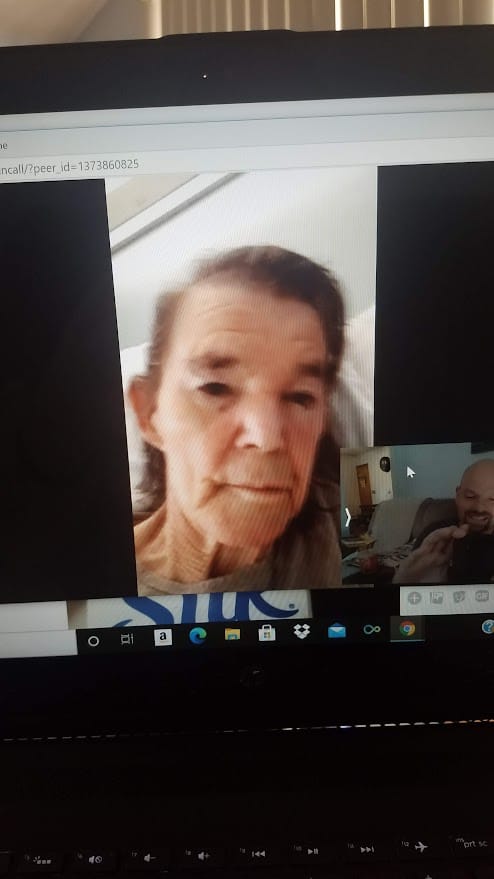
Instead, many had to settle for saying goodbye via a computer or tablet or phone. Many people died alone. For many, the last thing they saw may have just been an overworked nurse’s tired, brown eyes barely exposed above a mask and behind a plastic face shield.
Goodbye.
That’s not the way I would have ever pictured myself dying – alone, no family by my bedside, and having to say goodbye to a son or daughter on a screen on a computer.
I was fortunate I got to be with my mother, by her bedside, when she died. I had a wonderful nurse taking care of her and she knew I wouldn’t take “no” for an answer when I asked – demanded – to see her and stay with her that final night.
But it doesn’t erase the fact that I only got to see my mother three times – about thirty minutes each time – the final year of her life. I battle with the thought that she may have felt that I, and everyone else, abandoned her. She wouldn't have understood COVID. Yes, everyone tells me – like I need to be reminded – that she had Alzheimer's and wouldn't have known if I was there or not. But there will always be a small part of me that thinks somewhere deep in the recesses of her brain, she was aware.
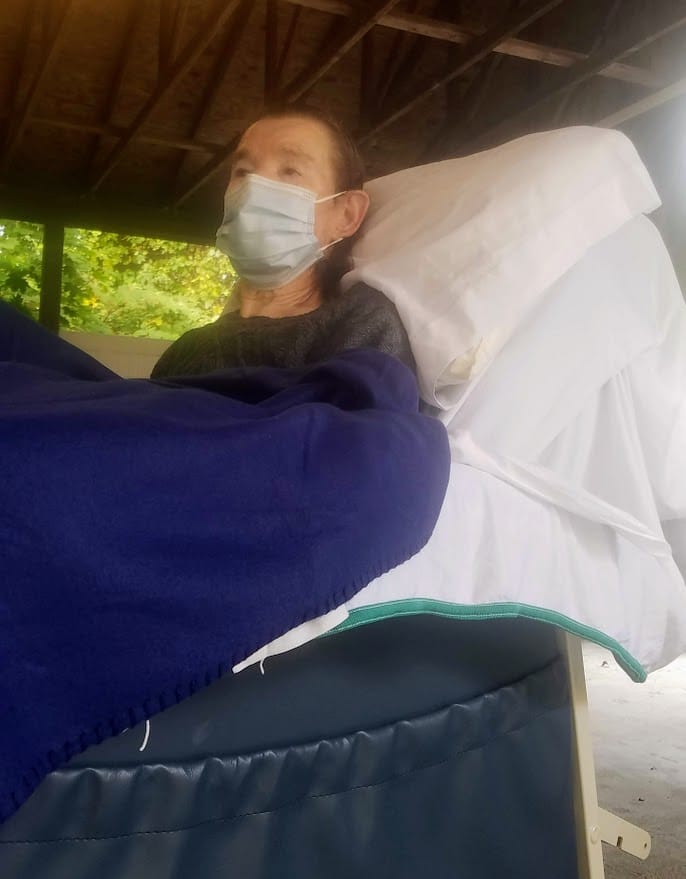
Anderson Cooper discussed this with Andrew Garfield. Keep in mind that Garfield’s mother died in 2019, and it was around March of 2020 that COVID restrictions went into place. Garfield says,
“I think the fact that she died at the end of 2019 was a small blessing or a big blessing, because if it had been a few months later, my family may not have been able to have our skin touching hers and read her poetry that she loved or rub her feet or be the ones to be putting the ice around her mouth and to hear her cry out when she was in pain. The idea of not being there for that fills me with a a borrowed grief from those people that have lost their closest people and had not been able to be with them. I can't imagine anything more horrific. I had the best possible version of a goodbye with my mother without the ending that I had. I'm not sure where I'd be. I'm not sure if I'd be able to eloquently talk about it, to be honest.”
Just dig the dagger in my heart and twist it. Ouch. I am happy for you, Andrew. I live knowing I did not have that kind of closure.
It is amazing that this interview was only a half hour long. I am reading through the transcript as I write this and every answer given deserves attention and commentary. The questions are so probing and Garfield’s answers are so well thought out. Add in the fact that Cooper is relating to everything Garfield is saying and contributing his experiences… my God, it is powerful stuff.
Cooper recalls the tragedies of his youth and discusses coming to the realization that he has suppressed the grief and pain his whole life. He admits he may very well not be where he is today – a driven, successful journalist – without those events shaping, and directing, his life.
Garfield talks about questioning faith and the existence of a God that would allow good, pious people to suffer agonizing pain. I wonder the same thing.
My father was not always very good to my mom, yet she was – unfortunately, quite literally – his faithful and unconditional servant throughout her life. Yet my father just turned 90 this past summer and is going very strong. He was out on a ladder painting the house with my brother just last month. God bless him.
My mother died at 80, but, essentially, her life was over at 75 when her cognitive skills left her. I always thought my mother would outlive my father. I was certain of it. Until she was 71, she never had to take any prescription medication. She worked so hard all her life. She brought joy to everyone's life. She deserved so many more restful, happy years. We deserved to have her for so many more years. As much as she was deprived, so are we deprived of having her in our lives.
The last thing I wanted to touch on is the one which has resonated for me ever since I’ve heard it and I’ve mentioned it to my therapist and my group. Frankly, it was what got me thinking about writing this article.
It is in response to Anderson Cooper asking Andrew Garfield, “Has that grief stayed with you?”
Yeah, it's here now. You feel it now? Yeah, and it's the only route to feeling her close again. That's the crazy thing. It's like, again, it's the longing. It's the admission of the pain. It's the crying out. Hey, I need you. What are you? I miss you so much. Only in that absence, only in really inhabiting that absence, being that little boy at the bottom of that empty cave in vast darkness and just crying out That's the only moment that she comes. It's a necessity. It's so weird. It's like the longing and the grief, fully inhabiting it and feeling it is the only way I can really feel close to her again. The grief and the loss is the only root to the vitality of being alive.
Wow. I had never thought of it that way – feeling grief and sorrow and pain is the way I feel closest to my mom. It is how I keep her alive. It really is true. It is at those moments when I allow myself to totally immerse myself in the grief, that I really feel the presence of my mother. It is almost as if I am in her arms again and she is comforting me.
So do I want that feeling to ever go away? Do I want to forget how it feels to be held by her? Do I want to forget how her voice sounds when she whispers in my ear as she rocks me back and forth, “Shhhhh, it will be alright”?
If grief is the only way I can truly connect with this sensation and memory, I don’t want to stop grieving. Give me all the bad – the depression, the hopelessness, the inertia – that comes with grief if it means holding onto her memory the most intense way I can.
Obviously, there must be other ways to do that and, hopefully, therapy will teach me that. But therapy better do it soon, because I am slowly forgetting what my mother’s voice sounded like, what her skin felt like. I didn’t grow up in the era of camera phones. I don’t possess many pictures of my mother, especially of me and her when I was younger. Unfortunately, I didn’t take many videos of her. Honestly, I only have three on my phone and only one of those short videos has a small, quick sample of her boisterous, absolutely contagious laugh that everyone loved.
Garfield referenced one of his most prized possessions is a perfume bottle that his mother used. He talks about having a crocheted blanket that she made.
Again, I don’t have many of my mother’s belongings. Only a couple of days after my mother passed, I came home to three huge Hefty bags blocking the doorway. My father had already bagged all her things and was getting rid of them.
Nice, right? I was irate. At the very least, do it when you know your son – who is in a very emotional state – won’t see it.
I did pull out a few things. To this day I hang my mother’s apron over one of the chairs at my kitchen table. I like to think of it as her sitting there when we have dinner. Not a day goes by where I don’t take a few seconds when I walk by it and just touch it and think about her.
